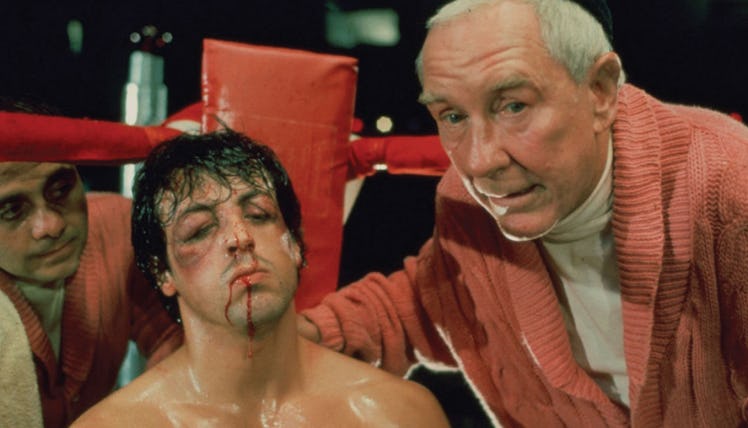5 Tips A Professional ‘Dad Coach’ Gives All New Fathers
Don't forget to read the man-ual

If new babies are disaster magnets, then you are Iron Man. Whether it’s lack of sleep, an excess of crying, or just the general anxiety that their life is in your hands, new fathers have a habit of making mistakes. Fell asleep and dropped your infant? Misjudged the max headroom of your doorway while giving a piggyback ride? Told your kid to stand up to bullies and accidentally turned them into the Terminator?
All of these bad-case scenarios are surprisingly standard, even for Armin Brott (aka Mr. Dad), author of the new book The New Father: A Dad’s Guide to the First Year and professional dad coach (which is like a life coach, but with someone else’s life). “Having kids is your parents’ way of getting revenge on you,” says Brott. “As you go through parenthood, you’ll have a finer appreciation for stuff they did to you.” He says that parenting books and magazines often place an unreasonable expectation on being the perfect father. “You’re going to screw up every so often. You do the best you can possibly do, and rest assured the more you do it the better you’ll get.” Still, here are a few ways to limit the damage.
“Having kids is your parents’ way of getting revenge on you … As you go through parenthood, you’ll have a finer appreciation for stuff they did to you.”
Practice With Your Kid Makes (Almost) Perfect
“So many guys have never had anything to do with babies until they have one,” Brott says, and Googling a bunch of stuff won’t help. What you need to do is pick up the little bundle of joy/poop and start getting some on-the-job training. “Spend as much time alone with your kid as possible,” he says, adding that it’s preferable to spend it in a quiet place at, like at your house, where you don’t have to deal with real or perceived criticism from mothers-in-law or other judgmental people (like someone else’s mother-in-law). Pretty soon, when you receive unsolicited or unwanted advice (see: in-law, mother) you’ll be confident in your parenting.
So You Dropped Your Baby
It happens. And believe it or not, babies are fine most of the time. You, not so much. Brott says the first reaction is: “Oh my god, I’m a horrible person!” Once that panic dissipates, assess the situation. He says that these events sound worse than the are. Usually the baby hasn’t fallen a long way and there’s a soft area like a blanket or a rug underneath you. If the baby isn’t bleeding, then check for subtler things, like if their behavior has changed. Are their pupils dilated? Are they throwing up? Can they remember who the president is? (If they can, get them to college, not a hospital.)
When In Doubt, Call The Doctor
The same advice goes when the kid is on your shoulders and his head nails a doorway. After they’re deemed free of bleeding or obvious injuries, the crying should be soothed because it could distract from subtler problems, Brott says if they are acting strange — like, stranger than usual — it’s a warning sign for something worse. Go call the pediatrician’s hotline, which are usually 24-hours. They’ve heard this a million times, so they’ll be calmer than you.
Standing Up To Bullies Can Make Them The Bully
One time Brott’s 4-year-old daughter came home from preschool telling her dad that another kid had pushed her. “I said, ‘Next time he pushes you, I want you to hit him back,’” he says. The next day his daughter walked into school, punched the kid, unprovoked, and declared, “That’s self-defense!” It sounds like it would hold up in a court of law, but next time, Brott would talk to the teachers and the parents of the other kid. “I skipped those steps,” he says. But if discussing it with the parents doesn’t stop the pushing, he says he’d proceeded the same way. It worked for Jon Snow against Ramsay Bolton.
Andrew Xu
Reverse Psychology Doesn’t Work The Way You Think It Works
Brott recalls the time his daughter and her friends starting saying “penis” over and over again in the car. His genius idea? In an effort to get it out of their system, he encouraged them to say it even more — and they did. About 9,000 more times. In hindsight, Brott says that the best thing he could have done is ignore it. “That’s the better approach,” he says. “They’re going to giggle. There’s no benefit to some fancy solution. It’s not going to work.” This advice does not apply to the penis-showing game.
This article was originally published on